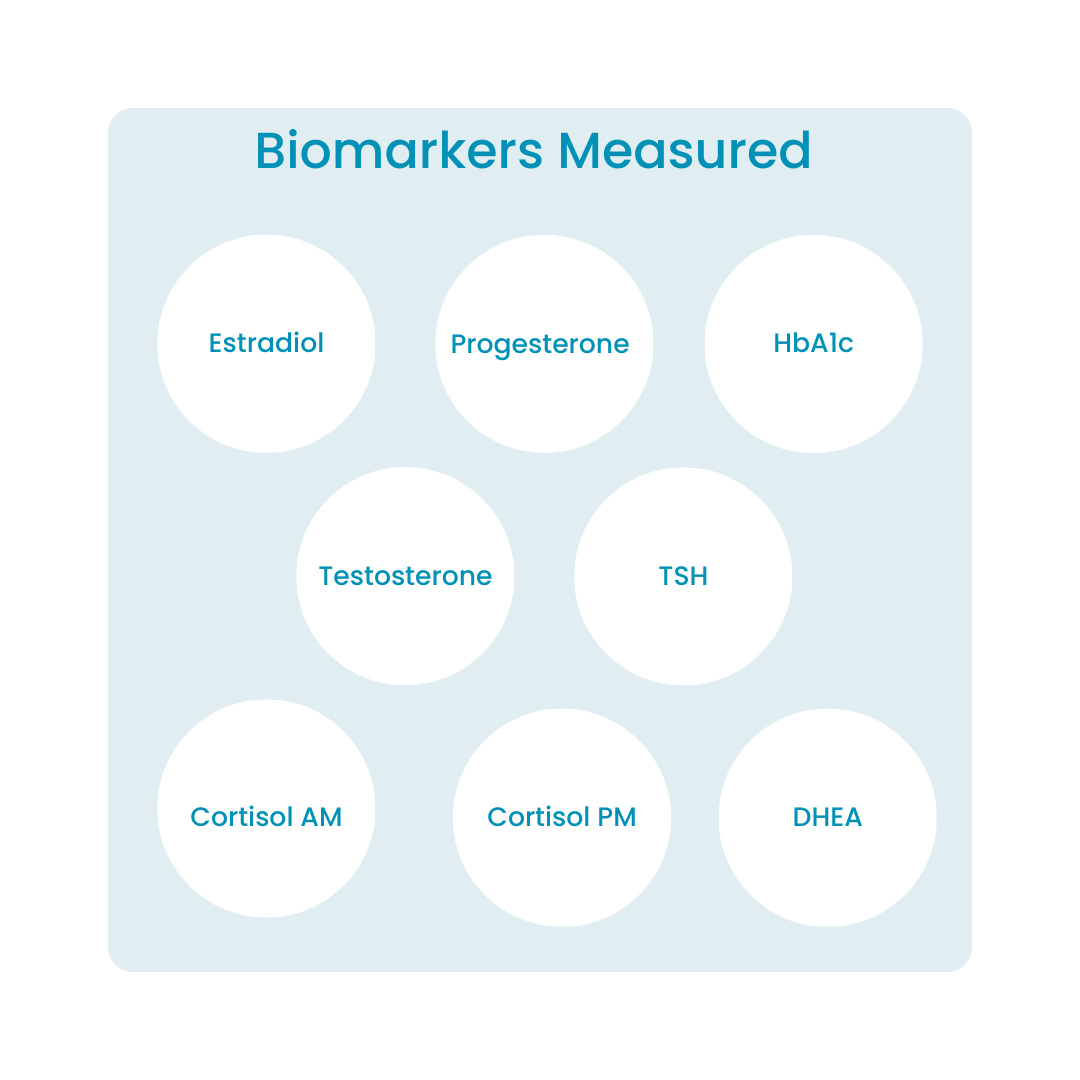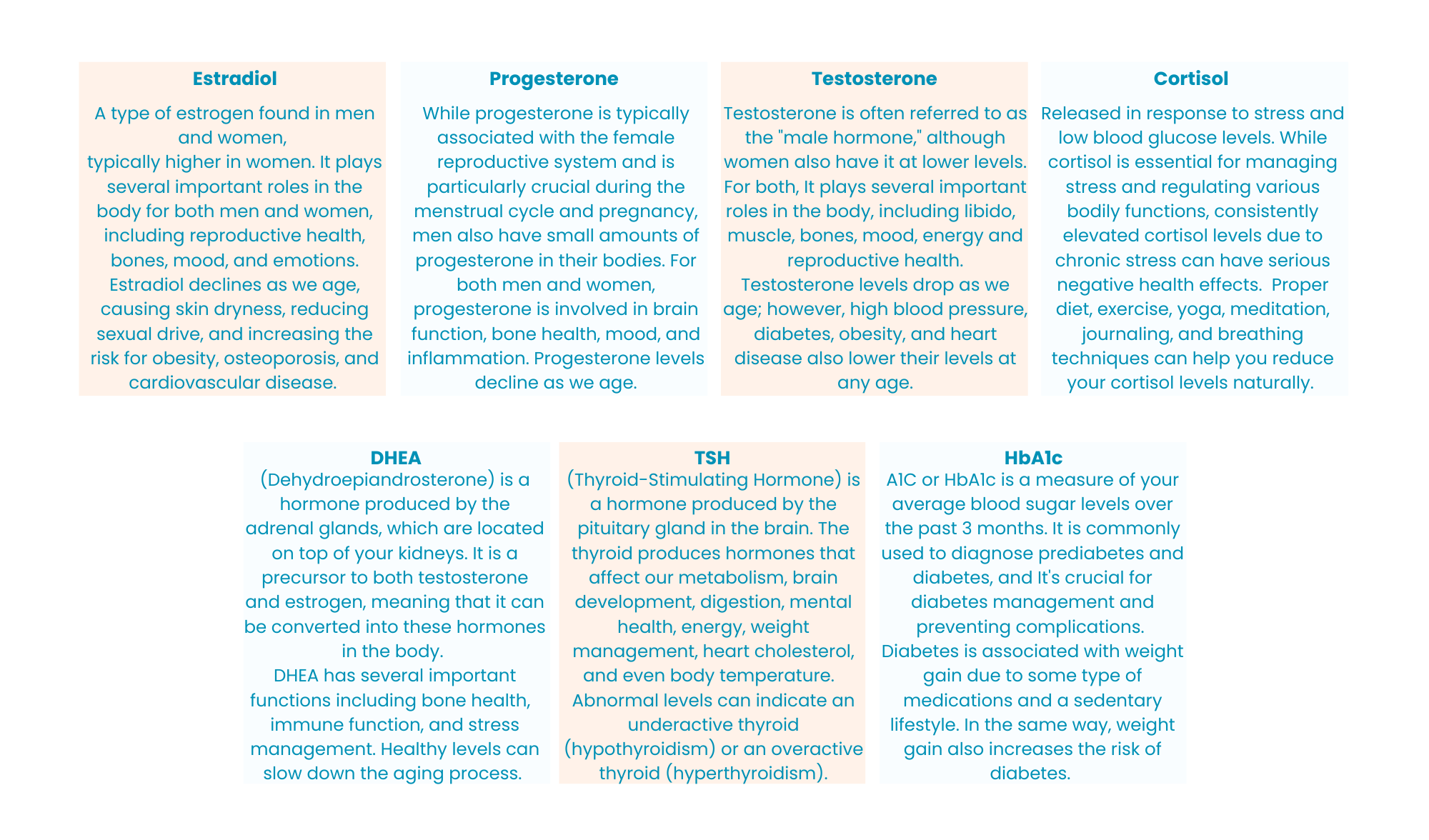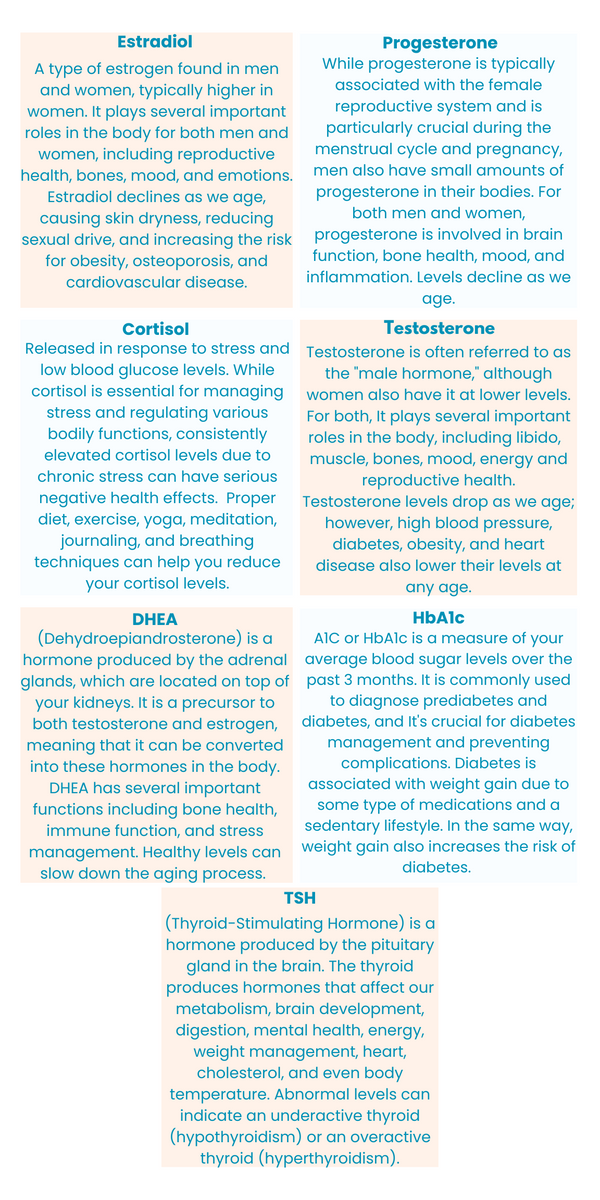Is this for me?
Struggling to keep your weight in check and seeing no results? It could be due to a hormonal imbalance. Our weight management panel will provide the insights you need, empowering you with a vital understanding of your body so that lifestyle choices can help manage those extra pounds.

Sample Collection
Easy to follow steps to make the process of collecting your sample seamless.
FAQs
Results are ready around five to seven days after the sample is received in our lab.
We don't bill your insurance directly but you can always submit your receipt for reimbursement if your insurance plan allows it.









